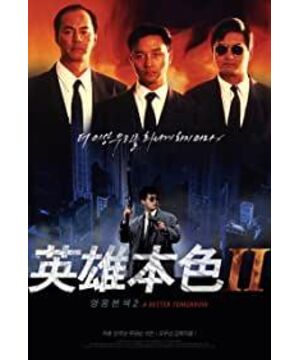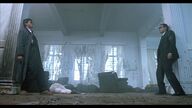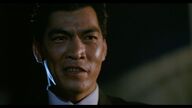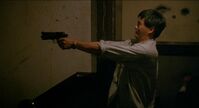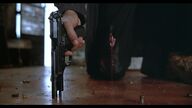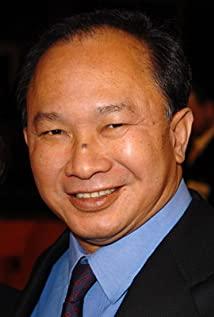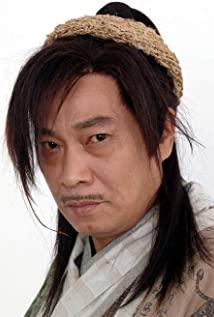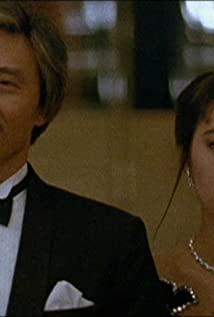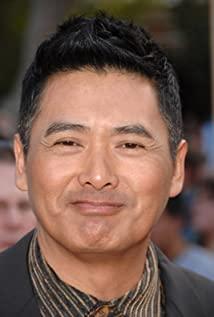"The True Color of Heroes" integrates the situation of the director and the leading actors, and conforms to the mentality of Hong Kong society. The frustration and ambition of the protagonist in the film can penetrate every scene of the film, and the violent aesthetic style of the film began to take shape from "The True Color of Heroes": the sharp and smooth images, the idol charm of the characters and the hot and exciting action scenes all reached the Hong Kong shootout at that time. The pinnacle of the film.
In Fenglin Pavilion, the Nocturne of the Southern Country is intoxicating and intoxicating. Brother Pony is tossing and turning in the corridor with the singer. John Woo's classic slow motion makes this scene extraordinarily elegant and charming. The transition from frivolous laughter to fierce eyes is so natural, and the graceful dance and murderous aura perfectly interpret what is called the aesthetics of violence.
A director who has lost his career at the bottleneck, an actor who is burdened with box-office poison, a star who has fallen into a low point, and a singer who is still chasing in the music world. The arrangement of fate brought these four men who had a bad career together. And the self-catharsis of these four men in the film has created the "first Hong Kong film" - "The True Color of Heroes".
In 1984, John Woo filmed his first shootout action film "Heroes Without Tears". However, during the filming process, due to casualties, Wu Yusen was dismissed by Jiahe, and the director's career entered a low ebb. Also in 1984, Fa Ge won the first best actor trophy in his acting career because of his outstanding performance in the literary film "Waiting for Dawn". Although he won the honor of the best actor, the dismal box office results made Fage neglected by filmmakers, and his career was also caught in the dilemma of box-office acclaim and unpopularity. He was once burdened with the title of "box office poison".
Dillon also left Shaw Brothers, which he had worked for for 18 years, a year before filming The True Colors, with a letter of dismissal in his hand: Thank you for the achievements you have made for the company over the years. The former No. 1 beauty in Hong Kong is also savoring the desolation of the old pearl yellow.
Brother Leslie Cheung also fell into the long-term "Tan Zhang hegemony" with Allen. At that time, his brother was still like a child. He was lively and brilliant in the film. Back then, the love song was mesmerizing.
I think the true nature of a hero is a question of dignity and choice, how do you choose to live, and how should you regain your lost dignity after being trampled on.
View more about A Better Tomorrow II reviews


